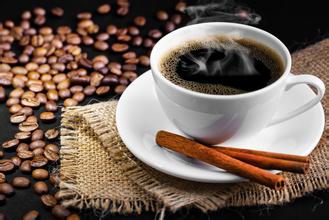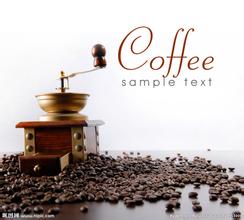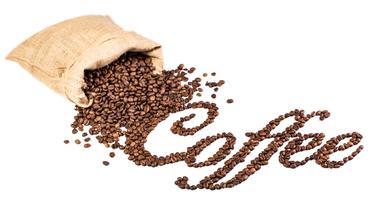Description of Arabian Coffee Flavor, characteristics of Grinding degree, introduction to the producing areas of High-quality Coffee beans
Good Arabica? Coffee requires a complicated process of hand picking, selection and fine processing, so are the most expensive and best coffee beans in the world? Arabica? Grow coffee. Robusta? Caffeine is low-cost and is usually used to produce instant coffee and canned coffee. A few of the better ones? Robusta? Grown coffee is also used in blending (mixed with Arabica coffee) espresso beans.
There is an important difference in other differences: the amount of caffeine. Robusta? The caffeine content of coffee is about? Arabica? Twice as much coffee, which is why drinking some canned coffee is prone to palpitations and insomnia.
Have you seen so much? Arabica coffee? With? Robusta coffee? Finally, it must be emphasized that:
Arabica coffee? It's not the same? Good coffee? Robusta? It's not absolutely cheap coffee!
Arabica coffee accounts for 75% of the world's coffee output, and the quality of Arabica coffee varies greatly, from good to bad. In recent years, a few countries (such as India) have devoted themselves to improving the quality of robusta coffee. They have planted robusta in high altitude areas, given the most careful care, and carefully washed the coffee. As a result, they have got very high-quality robusta coffee beans! Top Robusta beans are not cheap either, getting rid of the old impression that Robusta are cheap beans! So the quality of coffee beans is no longer good or bad. Is it Arabica beans? This crude and outdated ancient standard of judgment is judged. Arabica? Coffee has a varied and broad potential flavor. Arabica coffee produced in different regions, different elevations and different climates usually has its own characteristics and can show a completely different flavor. ? Arabica? When coffee is not roasted, it smells like grass. After proper roasting, it shows. Fruity? (medium and shallow baking) and? Caramel sweet? (deep baking), generally speaking, has a better aroma and flavor than Robota beans. ? Robusta? Coffee is usually mundane, dull, and pungent, and because the vast majority of Robusta coffee in the world is grown in low altitude areas (India has planted a small number of high-altitude, high-quality, washed robusta coffee beans, its price is higher than most Arabica coffee beans) the flavor produced by different regions and climates does not vary much, and lacks personality. When unbaked, it smells like raw peanuts, and cheap robusta coffee beans usually smell like peanuts when roasted. Mai Tsai tea? (medium baking) and? Rubber tire smell (deep baking), it is difficult to show the fine flavor of Arabica (Arabica) and? Robusta is two different coffee varieties, which currently account for the vast majority of coffee bean production in the world. Arabica seed? Coffee and? Robusta? There are three main differences in coffee: 1. Differences in planting conditions. 2. The flavor and characteristics are different. 3. The difference between market price and use. Planting condition difference
Arabica? The planting conditions of coffee are harsh, requiring higher elevations (above 2000 meters above sea level), fertile soil fertility, adequate moisture, proper sunshine conditions and shade. Arabica? Coffee tree species have poor ability to resist diseases and insect pests and are easy to be damaged. In addition, the annual output of coffee trees per unit area is also relatively low. At the moment? Arabica? Growing coffee accounts for 75% of the world's coffee production, in these? Arabica? Of the coffee output, only 10% of the quality of Arabica coffee can be classified. Boutique coffee (Specialty coffee)? ? Robusta? Coffee is commonly known as? Thick beans can be planted at low elevations (200 to 800 meters above sea level). They are resistant to diseases and insect pests and are not vulnerable to agricultural diseases. the annual output of coffee trees per unit area is higher, and they are harvested in large quantities by machine. generally speaking, the production cost is much lower than that of Arabica coffee.
、

Important Notice :
前街咖啡 FrontStreet Coffee has moved to new addredd:
FrontStreet Coffee Address: 315,Donghua East Road,GuangZhou
Tel:020 38364473
- Prev

Robusta coffee with weak aroma and bitter taste describes the characteristics of grinding degree and introduces the taste of varieties in producing areas.
[Arabica] Coffee has a varied and broad potential flavor. Arabica coffee produced in different regions, different elevations and different climates usually has its own characteristics and can show a completely different flavor. "Arabica" coffee smells like grass when it is not roasted. After proper roasting, it shows a "fruity" aroma.
- Next

Description of flavor of Angolan coffee beans, characteristics of grinding degree, introduction of price and taste of varieties
In 1575, the Portuguese began to occupy areas south of the Congo, established the city of Luanda, and conquered several indigenous tribes, allowing whites to slowly emigrate to Angola. Over the next 50 years, the Portuguese gradually expanded their territory. In 1617, Portugal established the city of Benguela in Angola, which became more stable and established Portugal's territory in Angola ever since.
Related
- Detailed explanation of Jadeite planting Land in Panamanian Jadeite Manor introduction to the grading system of Jadeite competitive bidding, Red bid, Green bid and Rose Summer
- Story of Coffee planting in Brenka region of Costa Rica Stonehenge Manor anaerobic heavy honey treatment of flavor mouth
- What's on the barrel of Blue Mountain Coffee beans?
- Can American coffee also pull flowers? How to use hot American style to pull out a good-looking pattern?
- Can you make a cold extract with coffee beans? What is the right proportion for cold-extracted coffee formula?
- Indonesian PWN Gold Mandrine Coffee Origin Features Flavor How to Chong? Mandolin coffee is American.
- A brief introduction to the flavor characteristics of Brazilian yellow bourbon coffee beans
- What is the effect of different water quality on the flavor of cold-extracted coffee? What kind of water is best for brewing coffee?
- Why do you think of Rose Summer whenever you mention Panamanian coffee?
- Introduction to the characteristics of authentic blue mountain coffee bean producing areas? What is the CIB Coffee Authority in Jamaica?

